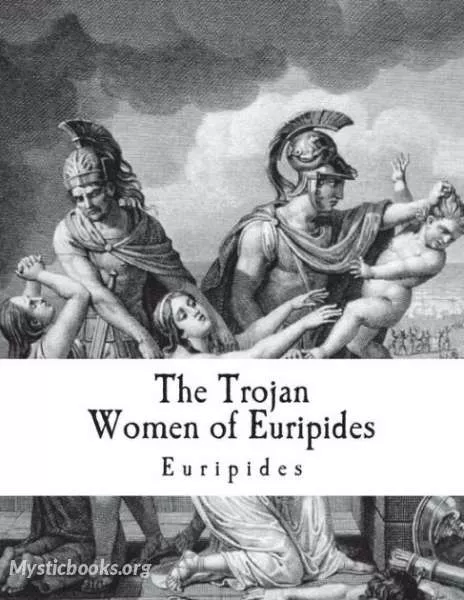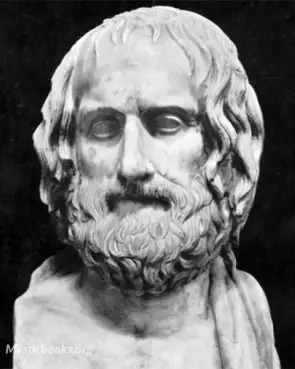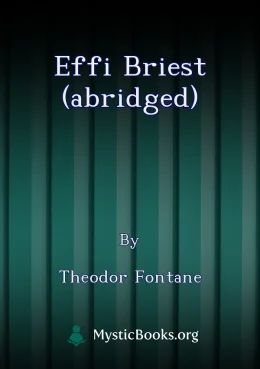
The Trojan Women
by Euripides
'The Trojan Women' Summary
Hecuba: Alas! Alas! Alas! Ilion is ablaze; the fire consumes the citadel, the roofs of our city, the tops of the walls!
Chorus: Like smoke blown to heaven on the wings of the wind, our country, our conquered country, perishes. Its palaces are overrun by the fierce flames and the murderous spear.
Hecuba: O land that reared my children!
Euripides's play follows the fates of the women of Troy after their city has been sacked, their husbands killed, and their remaining families taken away as slaves. However, it begins first with the gods Athena and Poseidon discussing ways to punish the Greek armies because they condoned that Ajax the Lesser raped Cassandra, the eldest daughter of King Priam and Queen Hecuba, after dragging her from a statue of Athena. What follows shows how much the Trojan women have suffered as their grief is compounded when the Greeks dole out additional deaths and divide their shares of women.
The Greek herald Talthybius arrives to tell the dethroned queen Hecuba what will befall her and her children. Hecuba will be taken away with the Greek general Odysseus, and Cassandra is destined to become the conquering general Agamemnon's concubine.
Cassandra, who can see the future, is morbidly delighted by this news: she sees that when they arrive in Argos, her new master's embittered wife Clytemnestra will kill both her and her new master. She sings a wedding song for herself and Agamemnon that describes their bloody deaths. However, Cassandra is also cursed so that her visions of the future are never believed, and she is carried off.
The widowed princess Andromache arrives and Hecuba learns from her that her youngest daughter, Polyxena, has been killed as a sacrifice at the tomb of the Greek warrior Achilles.
Andromache's lot is to be the concubine of Achilles' son Neoptolemus, and more horrible news for the royal family is yet to come: Talthybius reluctantly informs her that her baby son, Astyanax, has been condemned to die. The Greek leaders are afraid that the boy will grow up to avenge his father Hector, and rather than take this chance, they plan to throw him off from the battlements of Troy to his death.
Helen is supposed to suffer greatly as well: Menelaus arrives to take her back to Greece with him where a death sentence awaits her. Helen begs and tries to seduce her husband into sparing her life. Menelaus remains resolved to kill her, but the audience watching the play knows that he will let her live and take her back. At the end of the play it is revealed that she is still alive; moreover, the audience knows from Telemachus' visit to Sparta in Homer's Odyssey that Menelaus continued to live with Helen as his wife after the Trojan War.
In the end, Talthybius returns, carrying with him the body of little Astyanax on Hector's shield. Andromache's wish had been to bury her child herself, performing the proper rituals according to Trojan ways, but her ship had already departed. Talthybius gives the corpse to Hecuba, who prepares the body of her grandson for burial before they are finally taken off with Odysseus.
Throughout the play, many of the Trojan women lament the loss of the land that reared them. Hecuba in particular lets it be known that Troy had been her home for her entire life, only to see herself as an old grandmother watching the burning of Troy, the death of her husband, her children, and her grandchildren before she will be taken as a slave to Odysseus.
Book Details
Language
EnglishOriginal Language
Ancient GreekPublished In
415 BCAuthors

Euripides
Greece
Euripides was a tragedian of classical Athens. Along with Aeschylus and Sophocles, he is one of the three ancient Greek tragedians for whom any plays have survived in full. Some ancient scholars attri...
Books by EuripidesDownload eBooks
Listen/Download Audiobook
- Select Speed
Related books

Ramayan, Book 1 by Valmiki
The Ramayana is an ancient Sanskrit epic attributed to the Hindu sage Valmiki. It tells the story of Rama, a prince who is exiled from his kingdom and...

Don Carlos by Friedrich Schiller
Don Carlos is a historical tragedy by Friedrich Schiller, set in 16th-century Spain. The play explores the complex web of power, love, and duty that...

Anna Karenina, Book 8 by Leo Tolstoy
Set against the backdrop of 19th-century aristocratic Russian society, Anna Karenina delves into the complexities of love, marriage, and morality. The...

Effi Briest (abridged) by Theodor Fontane
Effi Briest is a classic of Prussian Realism that delves into the complexities of social norms, duty, and the consequences of transgression. It follo...

Cid by Pierre Corneille
The Cid, a classic French play by Pierre Corneille, is a tragic love story set in 11th-century Spain. The play tells the story of Don Rodrigue, a youn...

Squire by Arthur Wing Pinero
'Squire' by Arthur Wing Pinero delves into the intricate web of relationships and social pressures surrounding Kate Verity, a young woman facing the d...

Tis Pity She's a Whore by John Ford
'Tis Pity She's a Whore is a tragedy written by John Ford. It was first performed c. 1626 or between 1629 and 1633, by Queen Henrietta's Men at the C...

Antigone (Plumptre Translation) by Sophocles
Sophocles' "Antigone" is a timeless Greek tragedy that explores the conflict between individual conscience and societal laws. Antigone, the daughter o...

Gardener and The Burden by Rudyard Kipling
The Gardener and The Burden is a poignant and moving novella about the profound impact of loss and the power of memory. Helen Turrell, a woman who has...
Reviews for The Trojan Women
No reviews posted or approved, yet...
